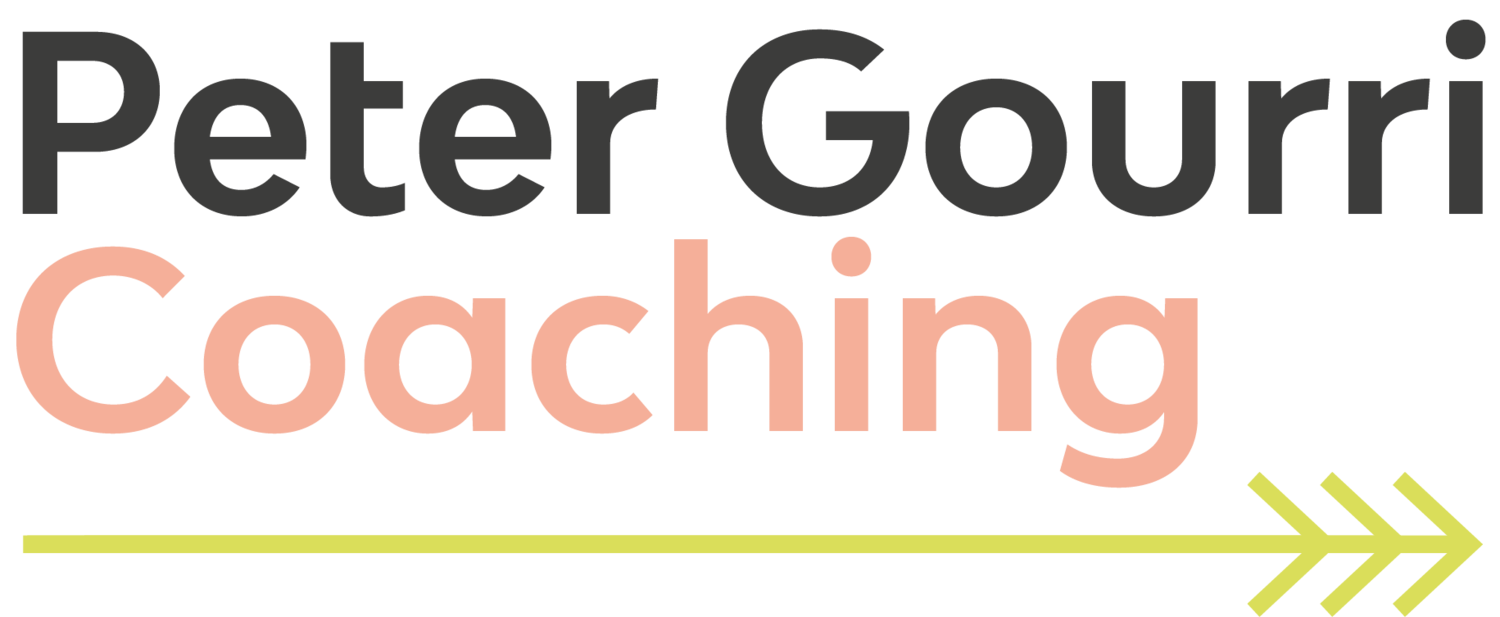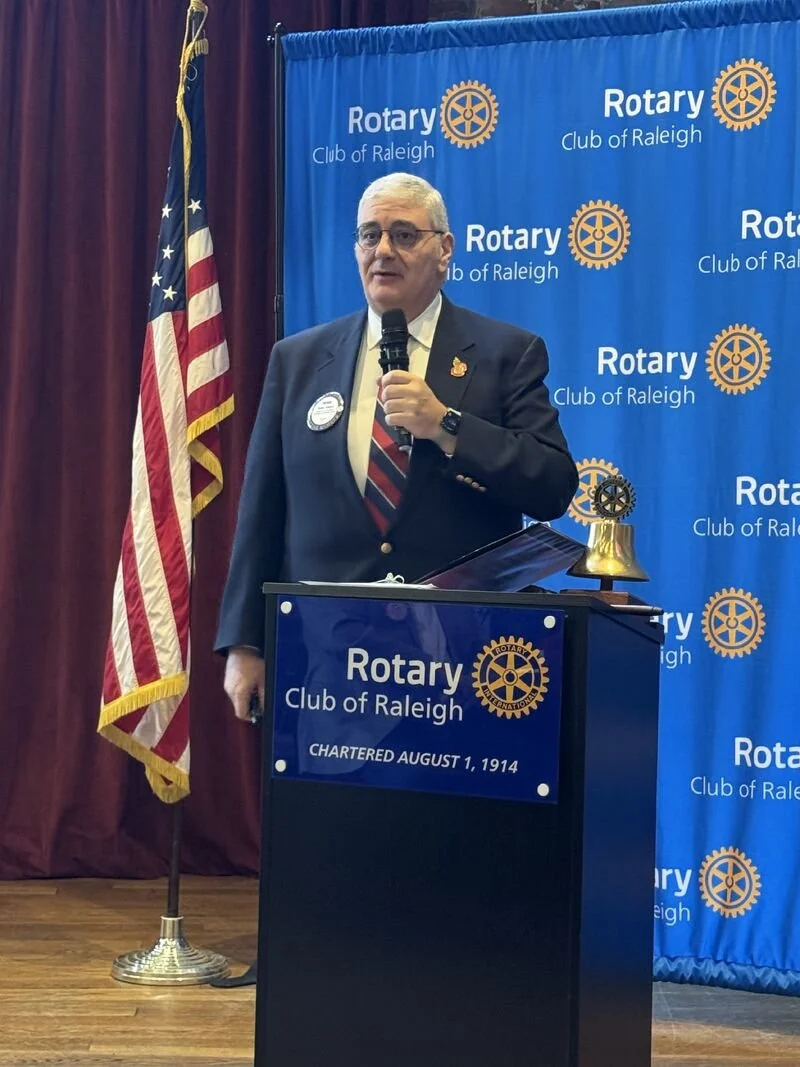The Legal Profession Has Evolved for Over 1,000 Years, And It Will Continue to Evolve
The Legal Profession Has Evolved for Over 1,000 Years. And It Will Continue to Evolve
The recent City A.M. report on Clifford Chance’s AI-driven restructuring has stirred understandable anxiety:
https://www.cityam.com/clifford-chance-ai-driven-redundancies-hit-london-business-service-roles/
The recent City A.M. report on Clifford Chance’s AI-driven restructuring has stirred understandable anxiety:
https://www.cityam.com/clifford-chance-ai-driven-redundancies-hit-london-business-service-roles/
Job losses are deeply difficult at any time, but when they happen before the holidays, their emotional toll is greater. They impact confidence, stability, and the outlook on what’s next.
But this moment is not the end. Not for the individuals affected or for the profession itself.
For more than a thousand years, the legal world has been shaped by continuous evolution. And at every major turning point, people predicted its collapse.
When the internet arrived, many believed we were finished.
When Google placed the world’s information at our fingertips, people said research and legal analysis were no longer needed.
When digital systems replaced paper, many said the profession couldn’t survive the shift.
It survived.
It adapted.
It grew.
AI is simply the next phase of that long arc.
Yes, some roles will change. Some tasks may disappear. But AI cannot replace the essence of legal work: judgment, empathy, communication, leadership, and strategic thinking.
I’ve lived personal reinvention. At age 48, after decades in law, I changed careers, and it became one of the most meaningful steps I ever took. Reinvention is real, at any age.
The future is not something that happens to us; it is something we shape.
And with resilience, clarity, and the right support, all will be well.
If this may help someone today, please share it.
More insights at www.petergourri.com.
Sunday Thoughts: Leadership Through the Shepherd’s Eyes
Long before there were corporate structures or leadership theories, the shepherd stood as one of humanity’s earliest models of leadership. And even with all our progress, the metaphor remains remarkably relevant.
Imagine a flock gathered at dusk inside a pen. One entrance. Clear boundaries. A protected space that keeps danger out and gives the flock a sense of security. It’s the earliest version of what we now call psychological safety.
Long before there were corporate structures or leadership theories, the shepherd stood as one of humanity’s earliest models of leadership. And even with all our progress, the metaphor remains remarkably relevant.
Imagine a flock gathered at dusk inside a pen. One entrance. Clear boundaries. A protected space that keeps danger out and gives the flock a sense of security. It’s the earliest version of what we now call psychological safety.
Then imagine the shepherd, calm, steady, and quietly present. He doesn’t dominate or intimidate. He leads through familiarity, consistency, and trust. Even when several flocks mingle, each flock responds only to its own shepherd’s voice, recognising the one who has guided and protected them.
This ancient scene reflects modern leadership more than most people realise.
In today’s organisations, people face countless “voices and forces” that climb over the walls, including stress, ego, fear, burnout, organisational politics, and cultural noise. These influences bypass trust and often create confusion or instability.
But genuine leadership looks a lot like the shepherd.
It is:
• Steady
• Trusted
• Consistent
• Clear
• Present
• Grounded
Leaders who adopt this approach create environments where people can think clearly, grow confidently, and contribute fully.
In coaching sessions across the UK and USA, I repeatedly see that leaders and professionals have an internal compass, a quieter voice, that already knows their direction. It’s simply drowned out by the noise of modern corporate life.
When they reconnect with that voice, they lead differently. Teams respond differently. Performance improves organically.
As you move into the week, consider this:
Follow the voice that brings clarity, not chaos.
Lead like the shepherd, with steadiness, presence, and trust.
And build environments where people feel safe enough to do their best work.
More reflections and resources at www.petergourri.com.
Small Business Saturday: Why Your Support Matters More Than Ever
Small Business Saturday is a unique moment each year, a day dedicated not to sales or offers, but to recognizing the importance of independent businesses and the people behind them.
While many of us spend this weekend clearing out inboxes full of Black Friday promotions, today offers a quieter, more meaningful opportunity. It invites us to reflect on the individuals, families, and local entrepreneurs who pour their expertise, creativity, and heart into building something that serves others.
Small Business Saturday is a unique moment each year, a day dedicated not to sales or offers, but to recognizing the importance of independent businesses and the people behind them.
While many of us spend this weekend clearing out inboxes full of Black Friday promotions, today offers a quieter, more meaningful opportunity. It invites us to reflect on the individuals, families, and local entrepreneurs who pour their expertise, creativity, and heart into building something that serves others.
Since transitioning from a long legal career into coaching and consulting, I’ve experienced firsthand the challenges and extraordinary rewards of running a small business. Supporting lawyers, executives, business owners, and individuals has given me a unique window into the impact that small enterprises can create when they lead with integrity and personalized care. Only today, I received a message out of the blue from an individual I coached, saying, “Peter, how are you? I hope all is well. Thought I’d share some news with you: my company bumped me up a level in the function I was in. I am very pleased about it and often reflect on our conversations to help me navigate the complicated landscape in the office.”
Small businesses aren’t faceless.
We’re relational.
We’re intentional.
We’re deeply invested in our clients' success.
At www.petergourri.com, every client conversation matters. Every moment of clarity or breakthrough is meaningful. And every referral or recommendation is appreciated far more than most people realize.
On this Small Business Saturday, I want to celebrate all the independent professionals who continue to serve their communities with dedication and resilience. And I want to gently ask: if you’ve benefited from my work or know someone who might, please consider sharing my name, website, or posts today.
Your support keeps small businesses strong. Your belief helps us continue making an impact.
Thank you for supporting small businesses and for being part of this journey.
Grateful for the work, but more so for the people
Grateful for the work but more so for the people!
As we approach Thanksgiving, it feels like the right time to pause and reflect on the people and organizations I’ve had the privilege of working with over the past few years.
Since stepping out of full-time legal practice, my coaching and consulting work has grown in ways I could not have predicted. Since 2018, I’ve delivered well over 1000 one-to-one coaching sessions with leaders across North America, the UK, Europe, and as far away as Singapore and Australia.
Grateful for the work but more so for the people!
As we approach Thanksgiving, it feels like the right time to pause and reflect on the people and organizations I’ve had the privilege of working with over the past few years.
Since stepping out of full-time legal practice, my coaching and consulting work has grown in ways I could not have predicted. Since 2018, I’ve delivered well over 1000 one-to-one coaching sessions with leaders across North America, the UK, Europe, and as far away as Australia.
In the last year alone, I’ve worked with:
US, UK, and Canadian attorneys, solicitors, legal executives, and barristers
In-house counsel in major corporations and financial institutions
Members of the British Civil Service and other public sector leaders
Veterans in industry, building second careers and bringing service-led leadership into new sectors
COOs and senior leaders in construction and related industries
Owners and leaders of small businesses
Leaders in the finance industry, including banking, insurance, and investment
Healthcare providers and life sciences leaders
Alongside leaders in media, marketing and communications, automotive and mobility, technology and digital platforms, retail and e-commerce, energy and climate, aviation and security, arts, culture, and non-profit.
Behind each of these labels are real people with real pressures. People are trying to balance responsibility with their own well-being. People navigating promotion, restructuring, complex risk, team dynamics, and personal change.
What I’m particularly grateful for is the trust my clients place in me when they bring the real issues into the coaching room:
The promotion they’re aiming for, but aren’t sure how to secure.
The restructuring they’re leading, and the impact it will have on people.
The quiet signs of burnout they can’t ignore any longer.
The difficult conversations they’ve delayed but know they need to have.
Those moments are where the real work happens. They are also where coaching earns its keep.
As I look ahead, my focus remains clear: to support senior leaders and their teams through growth, change, and uncertainty; to strengthen leadership benches, not just individual stars; and to create the kind of thinking space that allows for better, more grounded decisions.
If you’d like to explore how coaching or consulting might support you or your organization in the year ahead, you’re very welcome to get in touch.
You can find more about my work at www.petergourri.com or book a conversation directly via Calendly.
Focus on What Matters Most as You Plan for 2026 and Beyond
It’s never too late to plan your future—whether you’re relaunching after a setback, scaling what already works, or quietly pivoting toward something more authentic.
As many people reach the end of a busy year or step into a new one, a common feeling emerges: I know I want things to be better…but I’m not sure what “better” actually looks like.
It’s Never Too Late to Plan for 2026 and Beyond (Part 3)
Welcome to another part of our gentle, practical Wednesday series — a space created to help you build a thriving future in your career and business, one kind and consistent step at a time.
This series is for you whether you’re relaunching after a setback, scaling what already works, or quietly pivoting toward something truer. Over the coming Wednesdays, we’ll walk through a proven planning rhythm:
clarify what you want, choose fewer priorities, and take small steps that compound.
Each week blends reflection with action, so you always know what to think about — and what to do next.
If you’d like personalized support at any point, you can explore the resources at www.petergourri.com or book a complimentary planning session here: https://calendly.com/petergourri-coaching/success
Choose Your Big Four
Overwhelm isn’t a personal failing; it’s simply a mismatch between your capacity and your commitments. When too many projects compete for your attention, everything feels urgent — and nothing meaningfully moves.
Focus is a kindness.
By intentionally limiting your active projects, you increase the likelihood that any of them will truly be completed and yield the results you want.
Try This Gentle Planning Practice
Step 1: List every project tugging at your attention.
Don’t censor yourself; capture everything currently occupying your mind.
Step 2: Circle no more than four projects for the next 90 days.
These become your Big Four — the projects you’ll actively move forward.
Step 3: Move everything else to a “later” list.
You won’t lose them; you’ll simply review them monthly to see what’s still relevant.
Step 4: Give each active project a clear name and concise promise.
This ensures you know exactly what “done” looks like.
Example:
Project Name: Refresh Client Onboarding
Project Promise: Clients understand next steps within 10 minutes of signing.
Naming the promise helps you stay anchored in outcomes, not just tasks.
This Week’s Micro-Action (5–15 Minutes)
Block a weekly 20-minute review session to protect your Big Four from scope creep.
This single habit will keep your priorities stable and your progress steady, even on busy weeks.
Set the appointment. Honor it. Adjust gently as needed — the consistency matters more than the duration.
Want a One-Page Project Design Sheet?
If you’d like a simple template to structure each of your Big Four projects, you can download a one-page Project Design sheet at www.petergourri.com.
Your future is built one clear choice, one aligned priority, and one small weekly action at a time. You’re not behind. You’re right on time.
Borrow Clarity from Your Future Self
Gain clarity and confidence for 2026 with this simple planning practice. Learn how writing a letter from your future self can guide your goals and next steps.
It’s Never Too Late to Plan for 2026 and Beyond (Part 4)
This week continues our gentle, practical Wednesday series—created to help you build a thriving future for your career and business, one kind and consistent step at a time.
It’s never too late to plan your next season. Whether you’re relaunching after a setback, scaling what already works, or quietly pivoting toward something truer, the path forward becomes lighter when you move through it with intention. Over the coming Wednesdays, I’ll guide you through a calm, proven planning rhythm: clarify what you want, choose fewer priorities, and take small steps that compound.
This series blends reflection with action, so you always know what to think about—and what to do next.
If you’d like personal support at any point, explore the resources at www.petergourri.com or book a complimentary planning session here:
https://calendly.com/petergourri-coaching/success
Write Your Future-You Letter
When the path ahead feels foggy, you don’t need to wait for clarity—you can borrow it.
Imagining the version of you who has already done the work—the November 2026 you—can unlock courage, direction, and a deep sense of possibility.
This practice helps you step into certainty before it arrives.
This Week’s Practice
Set a 15-minute timer and write a letter from your future self, the you of November 2026.
In your letter, describe:
What you built—in your business, career, or personal systems
What you stopped doing—habits, commitments, or constraints you released
What support you gathered—mentors, tools, relationships, or processes
Specific wins—financial, operational, and personal
Then close with three sentences of advice from future-you to present-you.
These words often become the anchor you return to throughout the year.
This Week’s Micro-Action (5–15 minutes)
Read your letter out loud.
Notice how your posture, tone, and breathing shift. That sensation is your body agreeing with the vision—it recognizes the truth in it before your mind does.
If you’d like prompts to support this exercise, you can request them at www.petergourri.com.
Your future self is already rooting for you. Let’s build toward them, one Wednesday at a time.
Clarify What “Success” Really Means for Your Next Season
It’s never too late to plan your future—whether you’re relaunching after a setback, scaling what already works, or quietly pivoting toward something more authentic.
As many people reach the end of a busy year or step into a new one, a common feeling emerges: I know I want things to be better…but I’m not sure what “better” actually looks like.
It’s Never Too Late to Plan for 2026 and Beyond (Part 2)
It’s never too late to plan your future—whether you’re relaunching after a setback, scaling what already works, or quietly pivoting toward something more authentic.
As many people reach the end of a busy year or step into a new one, a common feeling emerges: I know I want things to be better…but I’m not sure what “better” actually looks like.
Speed without clarity leads to wheel-spinning. But when you define success in a way that feels humane, grounded, and aligned with your life, your efforts have direction. You know where you're heading. You know what matters. You know what to say yes to—and what to release.
This series continues with a simple but transformative step: clarifying what success means for you in the season ahead.
What You’ll Find in Each Issue
Every part of this series offers:
A short reflection to anchor your thinking
A simple practice you can complete with intention
One tiny action you can take immediately
At any point, you can explore additional resources at www.petergourri.com.
Clarify What “Success” Means for You
Success isn’t just about outcomes—it’s about how you experience your work and life on the way there.
When you define success clearly, you reduce decision fatigue, increase alignment, and create a filter for your energy, time, and focus. You stop sprinting without direction and begin moving with purpose.
This week, we set aside the external noise and craft a definition of success that belongs to you.
This Week’s Practice
Write a short definition of success for the next 90 days that includes both:
1. The outcomes you want
Revenue, client numbers, key milestones, visibility, or progress in your business or career.
2. The experience you want
How you want your workload to feel
What boundaries you want to honor
What pace you want to maintain
How you want to show up in your leadership, creativity, or well-being
Then, choose two to three signals that show you’re on track. Examples:
Conversations booked
Proposals sent
Offers accepted
Customer feedback received
Lead time reduced
Energy levels stabilized
Consistency maintained
Signals keep your vision grounded and measurable without being rigid or overwhelming.
This Week’s Micro-Action (5–15 Minutes)
Place your signals somewhere you’ll see them every week—at the top of your to-do list, inside your planner, or as a small note on your digital calendar.
This quiet reminder helps you steer your week with clarity rather than urgency.
Closing Reflection
When you take the time to define what success looks and feels like, you give your future a shape your current self can work toward. You create a soft but steady framework—one that supports momentum without sacrificing well-being.
Remember: clarity isn’t a luxury. It’s a form of self-support.
By naming what matters now, you make it far easier to build the next season of your career, business, or life with intention.
One thoughtful definition today can reshape the next 90 days—and possibly the next chapter of your work entirely.
Remembering, Reflecting, and Replanting: A Rotary Moment for Veterans Day
I had the privilege of speaking at the Rotary Club of Raleigh with my friend and fellow Rotarian, Colonel Kirk Warner (US Army Ret’d) of Smith Anderson Attorneys. Together, we explored the shared purpose behind Remembrance Day and Veterans Day — honouring those who served, those who sacrificed, and those who continue to inspire through their example.
I had the privilege of speaking at the Rotary Club of Raleigh with my friend and fellow Rotarian, Colonel Kirk Warner (US Army Ret’d) of Smith Anderson Attorneys.
Together, we explored the shared purpose behind Remembrance Day and Veterans Day — honouring those who served, those who sacrificed, and those who continue to inspire through their example.
My presentation focused on The Unknown Soldier, whose story remains one of history’s most powerful acts of empathy. In 1916, Chaplain David Railton found himself haunted by the question:
“What can I do to ease the pain of father, mother, brother, sister, sweetheart, wife, and friend?”
His answer was simple but profound: to return one unidentified soldier to Britain, so every grieving family could have a place to mourn. The Unknown Warrior, buried in Westminster Abbey on 11 November 1920, became a symbol for all nations — a silent reminder that courage has no name, and gratitude no borders.
From that single tomb, the idea spread worldwide — to Paris, Arlington, Rome, Athens, Ottawa, and Canberra — each a space for reflection, each a commitment that we will remember them.
For me, remembrance is deeply personal. My Greek Cypriot grandfather served in Salonika in WWI; my Irish grandfather fought fires during the Blitz; my great uncles served across continents — two resting still in Flanders Fields. My own journey later led me to serve with the Royal Air Force Volunteer Reserve (Training Branch).
These family ties keep remembrance grounded. It’s not abstract. It’s legacy, duty, and love for country intertwined.
I want to extend my thanks to Doug Kline and Eddie Coleman of NC Capital Group for attending today in support, to Jennifer Rodriguez, Paul Watson, and Lindsay Baker for capturing such meaningful moments, and to Harrison Turner, Linda Moynihan, and Colonel Kirk Warner for embodying what Rotary stands for — Service Above Self.
Our service continues through the Oak City Tree Campaign, part of the Trees for Raleigh initiative. On Veterans Day — November 11, 2025 — an oak tree will be planted in the Veterans section of Historic Oakwood Cemetery as a living tribute to those who served.
The oak tree, strong and enduring, mirrors the resilience of those it honours. Each tree planted in Raleigh stands not only for remembrance but for renewal — a sign that the values we cherish can take root again and again, generation after generation.
Remembrance teaches us that leadership is not about rank or recognition; it’s about service, humility, and continuity. That’s true in the forces, in Rotary, and in business leadership alike.
To explore my work in coaching and consulting for professionals, leaders, and law firms across the US and UK, visit www.petergourri.com.
It’s Never Too Late to Plan for What’s Next
It’s Never Too Late to Plan for What’s Next
A gentle, practical Wednesday series to help you design a thriving future for your career and business—one kind, consistent step at a time.
Why It’s Never Too Late to Plan Your Future
No matter where you are in your journey, it’s never too late to begin again—whether you’re relaunching after a setback, scaling what already works, or quietly pivoting toward something truer.
Many professionals and business owners reach a season where reflection feels necessary—often toward the end of a busy year or the start of a new one. This is the perfect time to pause, take stock, and create a plan that feels both achievable and aligned.
Over the coming weeks, this series will walk you through a calm, proven rhythm for planning your next chapter:
Clarify what you truly want
Choose fewer, more meaningful priorities
Take small steps that compound over time
This approach blends reflection with action, helping you know exactly what to think about and what to do next. Consider it your midweek reset—a quiet space to realign with your goals and build momentum in a sustainable way.
What to Expect from the Series
Each issue includes:
A short reflection to shift your mindset
A simple practice to help you plan with clarity
One tiny action you can take right away
If you’d like more personalized support at any point, explore free planning resources at www.petergourri.com or book a complimentary planning session here.
Start Where You Stand
Every effective plan begins in the same place: here—today.
Not when things feel calmer. Not when you’re more confident. You start where you are, with what you have.
The first step is to lower the threshold for progress so that action feels safe and doable. Momentum doesn’t come from pressure—it comes from movement. When you begin with kindness, you’ll always go further.
This initial reflection is about naming a near-term direction and creating just enough structure to take your first small step.
This Week’s Practice
Write one clear sentence that captures a meaningful outcome you’d like to achieve within the next few months. For example:
“I will have five retained clients in my new practice area.”
“I will present a promotion case that I’m proud of.”
Then, choose two 30-minute blocks in your calendar this week and label them Future-building block. Treat them as sacred time—dedicated to your growth and the next version of your work or business.
This Week’s Micro-Action (5–15 minutes)
List three small actions you could complete during those future-building blocks. Keep them simple and finishable in one sitting, such as:
Identify five warm contacts
Draft a one-paragraph service offer
Outline a new portfolio piece
Tiny actions lead to traction. You’ll move from intention to momentum without the weight of perfectionism or pressure.
Closing Reflection
Planning your future isn’t about predicting every turn—it’s about creating enough clarity to take the next right step. Progress begins when you choose presence over pressure and consistency over urgency.
Whether you’re planning a new season of your business, a fresh career direction, or simply a steadier rhythm in life, remember this: every small act of planning is an act of hope.
So, take a breath. Choose one small thing. Start where you stand—and trust that your next step will lead you exactly where you need to go.
Fear: The Real Monster in Business and Life 👻
Fear: The Real Monster in Business and Life 👻
Halloween is a night for masks, monsters, and make-believe fears. But for professionals and leaders, fear is an everyday companion. It’s not in the shadows — it’s sitting in the meeting room with you.
Halloween is a night for masks, monsters, and make-believe fears. But for professionals and leaders, fear is an everyday companion. It’s not in the shadows — it’s sitting in the meeting room with you.
Fear of failure. Fear of success. Fear of what others might think.
Most people believe that confidence comes from banishing fear. The truth is the opposite. Confidence is built through fear — one uncomfortable decision at a time.
Peter Gourri, executive coach and former lawyer, reflects: “For years, I was scared of getting it wrong — of letting people down. But fear never stopped me. It became the signal that I was doing something important.”
Fear is part of leadership. It fuels growth, innovation, and resilience — if you know how to work with it. Leaders who avoid fear limit their progress. Those who lean into it often discover their most transformative breakthroughs.
As Peter often tells clients, “Fear is feedback. It means you’re stepping toward something that matters.”
This Halloween, rather than celebrating fictional ghosts, consider the real ones — the “what ifs” that haunt ambition.
Here’s the good news: they lose their power the moment you act.
So yes, be scared. Try anyway. Fail forward. Laugh when it doesn’t go to plan. Then try again.
The courage to keep moving is the truest kind of magic.
🎃 Book a meeting to learn how coaching can help you turn fear into fuel, in business, leadership, and life.
#lawyers #attorneysatlaw #executivecoaching #leadershipdevelopment #pgcc #fearlessleadership #halloween2025
When Generosity Backfires: A Reflection on Value, Boundaries & Kindness
Kindness isn’t weakness. And boundaries are not barriers—they’re anchors.
Every client I’ve worked with (except one, years ago) has found success. That’s no accident. That’s the power of expert, values-led coaching.
A few weeks ago, I made a generous offer to three individuals—small business operators I genuinely wanted to support. I proposed a reduced fee structure for six months, after which my full rate would apply.
I believed in them. I was kind, thoughtful—and I thought, helpful.
Two never responded. One said they might reach out later. The third replied—after a reminder—to say they couldn’t work with me because I came across as “desperate.”
At first, I was offended. I run a full practice. My clients succeed. I don’t need to discount—I chose to because I believe in supporting others.
I explained this to them. They apologized. I was gracious. But I haven’t heard back.
And maybe… that’s the lesson.
Perhaps I never should have offered the discount.
Because supporting someone isn’t the same as undervaluing yourself.
Kindness isn’t weakness. And boundaries are not barriers—they’re anchors.
Every client I’ve worked with (except one, years ago) has found success. That’s no accident. That’s the power of expert, values-led coaching.
So here’s the message I want to leave with you:
✅ Be kind—but don’t diminish your value.
✅ Help where you can—but make sure it helps them, not just soothes guilt.
✅ Know your worth—and never be afraid to stand in it.
If you’re wrestling with this balance, you’re not alone. If this story resonates, please share it.
👉 www.petergourri.com
#lawyersofgoogle #attorneysatlaw #executivecoaching #leadershipinsight #coachingvalues #knowyourvalue #pgcc #petergourri
How to Lead an All-Hands Meeting After Bad News: A Blueprint for Clarity and Trust
When bad news hits—restructuring, layoffs, leadership exits, financial setbacks—your people don’t just need information. They need leadership.
When you’re about to lose it, BUFCA helps you lead instead.
When bad news hits—restructuring, layoffs, leadership exits, financial setbacks—your people don’t just need information. They need leadership.
When bad news hits—restructuring, layoffs, leadership exits, financial setbacks—your people don’t just need information. They need leadership.
An all-hands meeting isn’t a formality. It’s a cultural reset. And how you show up in that moment defines how your organisation will respond in the days, weeks, and months ahead.
As an executive coach working with lawyers, executives, and business owners across the UK and USA, I’ve helped leaders prepare for these pivotal conversations. Here’s how to do it right:
1. Anchor the Message
Start with a clear, simple narrative:
• What happened?
• Why did it happen?
• Where are we headed next?
People need to understand the logic of what’s happened—not just the emotion. When the message is muddled, confusion festers. When it’s clear, even hard truths land with greater dignity.
2. Acknowledge Reality—But Don’t Dwell There
Naming what’s difficult shows humanity. But good leadership doesn’t get stuck in despair. Acknowledge the emotional toll and business impact, then pivot to possibility.
“This is tough” can coexist with “We’ll get through it.”
3. Show What Comes Next
People want to know: Does my work still matter? Is there a plan? Frame the future with practical action, linked to purpose. Be honest, specific, and hopeful—but avoid spin.
Your team doesn’t want perfection—they want credibility.
4. Make It Human
After the slides end, the real work begins. Be available. Invite questions. Listen deeply. Follow up. And pay attention to those hit hardest by the change—they’re your culture’s early warning system.
If you’re facing this moment, don’t go in unprepared.
At www.petergourri.com, I help leaders craft authentic messaging, build trust under pressure, and lead all-hands that move people forward.
How Shall We Then Live! In Business? Skepticism, Realism, and Defiance in Leadership
How Shall We Then Live—In Business? Skepticism, Realism, and Defiance in Leadership
The question “How shall we then live?” is one of the oldest in philosophy. But for today’s lawyers, executives, and business owners, it has a sharp corporate edge: how should we lead in times of uncertainty?
How Shall We Then Live—In Business? Skepticism, Realism, and Defiance in Leadership
The question “How shall we then live?” is one of the oldest in philosophy. But for today’s lawyers, executives, and business owners, it has a sharp corporate edge: how should we lead in times of uncertainty?
At PGCC, I believe three stances form a compass for modern leadership: Skepticism. Realism. Defiance.
🔍 Skepticism: Healthy Doubt as Strategy
Skepticism in business isn’t cynicism—it’s disciplined inquiry. Strong leaders don’t blindly trust KPIs, forecasts, or industry hype. Instead, they ask: What assumptions are hiding here? Where are the blind spots? Healthy skepticism protects against groupthink and makes space for better decisions.
🌍 Realism: Facing Facts Without Illusion
Realism is clarity. It’s the ability to acknowledge market realities, team limitations, or regulatory constraints without denial. Realism doesn’t weaken strategy; it strengthens it. By grounding ambition in truth, realist leaders build credibility and inspire confidence, because people trust leaders who face facts.
🔥 Defiance: The Courage to Hold the Line
Defiance is courage in action. It’s refusing to sacrifice values for convenience. Whether it’s saying no to unethical clients, resisting toxic short-termism, or protecting culture, defiance safeguards integrity. Defiant leaders become trusted guardians of what truly matters.
The Leadership Equation
• Skepticism sharpens thinking.
• Realism grounds strategy.
• Defiance safeguards integrity.
Together, these qualities are not survival tactics—they are what set leaders apart. In disruption, leaders who weave them together create organizations that endure, inspire, and succeed.
📌 Ready to explore how these qualities can shape your leadership journey?
Book a discovery session with me here: https://calendly.com/petergourri-coaching/success.
Please share this article if it could help others in your network.
The Road to Success, Abundance, and Fulfillment
The Road to Success, Abundance, and Fulfillment
This morning I listened to a sermon at my church, and it struck me how many timeless lessons from scripture apply directly to our lives—no matter what faith or belief system you hold.
The pastor shared four simple but powerful truths:
Expect suffering
Embrace judgment
Be broken
Be confident
The Road to Success, Abundance, and Fulfillment
This morning I listened to a sermon at my church, and it struck me how many timeless lessons from scripture apply directly to our lives—no matter what faith or belief system you hold.
The pastor shared four simple but powerful truths:
Expect suffering
Embrace judgment
Be broken
Be confident
As I reflected, I realised this isn’t just a spiritual lesson—it’s also the road to success, abundance, and fulfillment.
I’m 55 years old, and I’ve been working since I was 10 years old in my parents’ business. At 14, I took on part-time work for someone else, and by 17, I was working full-time while attending night classes at college. Eventually, I became a lawyer and was fortunate enough to build a very successful career. But here’s the truth: I wasn’t fulfilled.
Fulfillment came later—and it didn’t come easily. It came through suffering loss, facing judgment (often from people who had no right to judge but did so anyway), and being broken. That part wasn’t fun. But what I found on the other side was confidence—true confidence rooted not in money, titles, or status, but in resilience, perspective, and a deeper understanding of myself.
This is what I help others with today. I guide people through these same challenges—helping them see meaning in the hard times, rebuild from brokenness, and discover the confidence to live life fully.
If this resonates with you, let’s have a conversation. You never know—you might just change your life.
👉 Learn more at www.petergourri.com
Please share this with someone who may need it today.
Tired of Vague Feedback? Here’s How to Get Clarity from Your Boss
In my executive coaching work with lawyers, executives, and business owners, vague feedback is one of the biggest barriers to growth. Here’s how to get the insight you actually need.
“Be more strategic.”
“Push for innovation.”
“Lead with impact.”
You’ve probably heard phrases like these. They sound impressive—but they don’t tell you what to do differently. And the higher up you go, the more ambiguous the feedback becomes.
In my executive coaching work with lawyers, executives, and business owners, vague feedback is one of the biggest barriers to growth. Here’s how to get the insight you actually need:
1. Ask Specific Questions
Generic prompts like “Do you have any feedback?” often lead to bland answers. Instead, try:
• “What’s one thing I could’ve improved in that presentation?”
• “Was my response to the CEO’s concerns clear and aligned with our goals?”
2. Link Feedback to Your Goals
Don’t assume your boss knows what you’re working on. Let them in. Say, “I’m focusing on strengthening cross-functional leadership. Could you share one thing I might do differently next time?” This makes feedback more relevant and easier to apply.
3. Offer Clear Choices
If you’re facing vague direction, force a decision. For example:
• “Should I take the lead or delegate this?”
• “Do you want this resolved by Friday, or is next week better?”
Giving options helps your manager clarify their expectations.
4. Observe Non-Verbal Cues
Sometimes the real feedback is in what isn’t said. Pay attention to tone, posture, and timing. If your boss seems hesitant, check in: “I sensed a bit of hesitation—should we explore that further?”
5. Explain Why Clarity Matters
It’s okay to ask for better input. Say:
• “Examples help me apply your feedback more effectively.”
• “If the direction is too broad, I might focus on the wrong things.”
Your boss may not realise how their communication lands—until you reflect it back.
At Peter Gourri Coaching, I help professionals refine how they ask for feedback, not just how they receive it. When you take ownership of the conversation, you gain the clarity you need to lead with impact.
📅 Want to learn how to have better feedback conversations? Book a coaching session
Burnout in the Legal Profession: A Silent Epidemic We Can No Longer Ignore!
Burnout in the Legal Profession: A Silent Epidemic We Can No Longer Ignore
I worked in the legal profession for nearly 30 years. During that time, I had my fair share of moments when I felt burnt out—but I just kept going. It wasn’t particularly healthy.
But one moment stays with me.
I was in the car with a barrister I deeply respected—professionally brilliant and personally grounded. During the journey, they broke down in tears. They couldn’t take any more.
This wasn’t someone weak. This was someone strong, competent, and focused. But like so many in our field, the weight had become unbearable.
Burnout in the Legal Profession: A Silent Epidemic We Can No Longer Ignore
I worked as a litigator in the legal profession for nearly 30 years. During that time, I had my fair share of moments when I felt burnt out—but I just kept going. It wasn’t a particularly healthy approach.
But one moment stays with me.
I was in the car with a barrister I deeply respected—professionally brilliant and personally grounded. During the journey, they broke down in tears. They couldn’t take any more.
This wasn’t someone weak. This was someone strong, competent, and focused. But like so many in our field, the weight had become unbearable.
Burnout is real. And in law, it’s a silent epidemic.
One in four legal professionals now reports clinical depression. The long hours, the constant pressure, the fear of showing vulnerability—it takes a toll.
At www.petergourri.com, I coach lawyers, executives, and legal business owners across the UK and US to reclaim energy, purpose, and clarity—without walking away from the profession they’ve worked so hard to build.
I offer:
One-to-one coaching for burnout recovery
Team training to foster healthy legal cultures
Leadership development focused on sustainability
Strategy sessions to realign your practice with your values
This epidemic isn’t just emotional—it’s systemic. But you don’t have to do it alone.
If this resonates with you—or could help someone in your world—please share it. It might be the lifeline they didn’t know they needed.
#lawyersoflinkedin #attorneysatlaw #burnoutrecovery #mentalhealthinlaw #legalprofession #executivecoaching #pgcc #petergourri
Leadership Under Fire: When You Feel Like Going Full Capone
“I want him DEAD! I want his house burned to the GROUND!”
— Al Capone, The Untouchables
That scene is iconic — and exaggerated, and my client didn’t say it, but it sounds more dramatic, right? But let’s be honest: if you’re in a leadership role, you’ve probably felt a version of that firestorm when something critical goes wrong.
When you’re about to lose it, BUFCA helps you lead instead.
“Leadership Under Fire: When You Feel Like Going Full Capone”
“I want him DEAD! I want his house burned to the GROUND!”
— Al Capone, The Untouchables
That scene is iconic — and exaggerated, and my client didn’t say it, but it sounds more dramatic, right? But let’s be honest: if you’re in a leadership role, you’ve probably felt a version of that firestorm when something critical goes wrong.
A CEO client of mine recently experienced that moment. A repeated error led to a financial loss. He was furious and ready to terminate the employee immediately.
But here’s the twist — this time, the problem wasn’t the employee. It was a system failure.
In that high-pressure moment, I drew on a tool I was first introduced to during my ICF coach training with Accomplishment Coaching. It’s called BUFCA — and it has become a cornerstone of how I help leaders think and lead under pressure:
🔹 B = Breakdown – What went wrong? What shouldn’t have happened?
🔹 U = Upset – What’s the emotional impact? What’s alive in you?
🔹 F = Facts – Strip away story and judgment. What’s objectively true?
🔹 C = Commitment – What are you really committed to in this situation?
🔹 A = Action – What’s the next step that aligns with your commitment?
BUFCA helped this CEO take a breath, reframe the issue, and ultimately avoid making a decision he would’ve regretted.
🔥 Leadership doesn’t mean not feeling the heat. It means learning how to move through it with clarity.
🧭 Learn more about how I help business leaders across the USA and UK lead with perspective, courage, and precision at: www.petergourri.com
📨 If this helped, share it with someone navigating leadership under pressure.
#BUFCA #executivecoaching #accomplishmentcoaching #lawyersofgoogle #attorneysatlaw #pgcc #SuccessStartsInside
Wisdom from the Most Unexpected Place: A Lesson from Resident Alien
Wisdom from the Most Unexpected Place: A Lesson from Resident Alien
In a recent episode of Resident Alien, we witnessed something completely unexpected: a flash of profound insight from Harry Vanderspeigle, the usually self-centered, socially awkward, and clueless alien who rarely contributes anything truly helpful.
In a recent episode of Resident Alien, we witnessed something completely unexpected: a flash of profound insight from Harry Vanderspeigle, the usually self-centered, socially awkward, and clueless alien who rarely contributes anything truly helpful.
Yet in a moment that stunned even Asta Twelvetrees, he said something that stopped us in our tracks:
🌱 “You are both a failure and a success. The difference is which voice you listen to.”
Simple. Deep. And entirely true.
We often think insight must come from polished mentors or proven leaders. But sometimes, it arrives in the unlikeliest of places. The truth is, we all have that duality within us, especially those navigating high-stakes environments such as law, business, or leadership.
The inner critic is always ready to point out the failures. But there’s another voice—the one that remembers what you’ve survived, adapted to, and overcome.
As an executive coach, I see this truth play out with clients across the US and UK every day: your past doesn’t define your potential. The version of you who has already navigated a challenge? Let that version lead now.
Explore coaching that meets you exactly where you are—at www.petergourri.com.
And if Harry Vanderspeigle’s moment made you pause, too, share this post. Someone else may need to hear it today.
#ResidentAlien #Resilience #ExecutiveCoaching #SelfLeadership #GrowthMindset #SuccessStartsInside #pgcc #petergourri
When Leadership Scandals Go Viral—The Human Cost Is Greater Than We Admit
When Leadership Scandals Go Viral—The Human Cost Is Greater Than We Admit
By Peter Gourri | Executive Coach | www.petergourri.com
You won’t see the photo here.
It has been broadcast, meme-ified, and replayed over 62 million times. It doesn’t need my help spreading further.
This isn’t commentary—it’s a boundary.
When Leadership Scandals Go Viral—The Human Cost Is Greater Than We Admit
By Peter Gourri | Executive Coach | www.petergourri.com
You won’t see the photo here.
It has been broadcast, meme-ified, and replayed over 62 million times. It doesn’t need my help spreading further.
This isn’t commentary—it’s a boundary.
Recirculating the image now feels like a perverse form of voyeurism, not insight. And we must be better than that.
What happened: Astronomer’s CEO, Andy Byron, was caught on a kiss-cam at a Coldplay concert with his Chief People Officer. Both are married to others. The clip went viral. He’s since resigned.
What’s really happening:
Spouses were blindsided.
Children became involuntary witnesses to adult humiliation.
An HR department, meant to safeguard culture, is now at the epicentre of a breach of trust.
Employees are left reeling.
The entire organisation is asking: What do we stand for now?
This is a crisis—but it’s also a mirror.
It reveals the truth that leadership is public, whether you like it or not. Human mess and executive responsibility cannot be separated in a values-based culture.
As an executive coach working with lawyers, founders, and senior leaders across the UK and the US, here’s what I guide clients through in these moments:
🔹 Protect those in the shadows. The families. The silent colleagues. The people who didn’t choose the spotlight but are suffering in it.
🔹 Stop recycling trauma. Don’t repost. Don’t perform empathy for clicks. Lead with dignity.
🔹 Respond with candour and compassion. Clarity is powerful when delivered with care.
🔹 Repair trust from the inside out. A policy change won’t undo betrayal. Culture repair must start with human connection.
🔹 Anchor leadership in values. What you tolerate today becomes your reputation tomorrow.
This scandal isn’t just a headline—it’s a cautionary tale. If your firm, board, or leadership team is grappling with crisis or cultural trust issues, I can help you lead through it—quietly, professionally, and with integrity.
If this perspective might help someone else, please share it.
#pgcc #executivecoaching #valuesbasedleadership #reputationmanagement #humanleadership #lawyersofgoogle #attorneysatlaw #petergourri #coldplay
The Real Cost of Undercharging: It’s Not About the Money - It’s About Your Visibility
The Real Cost of Undercharging: It’s Not About the Money—It’s About Your Visibility
Many of the brilliant professionals I work with—lawyers, executives, and business owners- aren’t being held back by skill, strategy, or work ethic. They’re being held back by something far subtler: undercharging.
The Real Cost of Undercharging: It’s Not About the Money—It’s About Your Visibility
Many of the brilliant professionals I work with—lawyers, executives, and business owners- aren’t being held back by skill, strategy, or work ethic. They’re being held back by something far subtler: undercharging.
It doesn’t matter whether you’re running a firm, scaling a business, or stepping into your next leadership role. If you’re shrinking to fit—delivering too much for too little, overexplaining your value, or letting unclear messaging stand in the way—you’re not just undervaluing your service. You’re keeping yourself invisible.
This isn’t just about rates. It’s about mindset, structure, and the subtle self-sabotage that keeps high performers stuck:
🔹 You’re amazing at what you do, but your method only exists in your head. That’s not scalable. Codify it. Own it. Protect it.
🔹 You’re communicating through jargon or fluff. Speak in real language. If your clients can’t see themselves in your message, they won’t lean in.
🔹 You’re pricing for approval, not positioning. Your fees send a message. If you want to attract high-impact clients, align your pricing with the transformation you deliver.
Actual growth doesn’t mean chasing trends or becoming a content machine. It’s about defining success on your terms—and stepping into a business model that reflects your full value.
Playing big isn’t about working more. It’s about being brave enough to simplify, humanize, and claim space in your market with clarity and confidence.
If this strikes a chord, ask yourself:
Where am I still undervaluing my voice, my method, or my message… when the next version of my business is asking me to take up more space?
You didn’t build all of this to stay small.
🔗 Ready to shift into a model that honours your expertise and scales sustainably? Let’s talk. Book a call here
#executivecoaching #lawyersoflinkedin #growthmindset #pgcc #successstartshere #valueyourwork #scaleyourimpact #petergourri






























